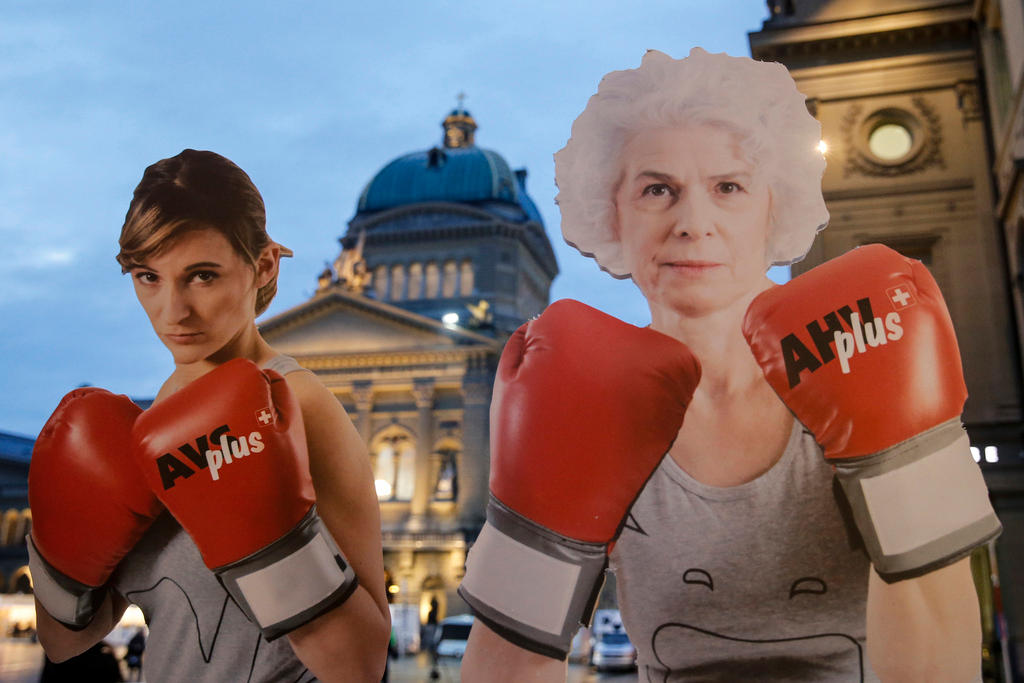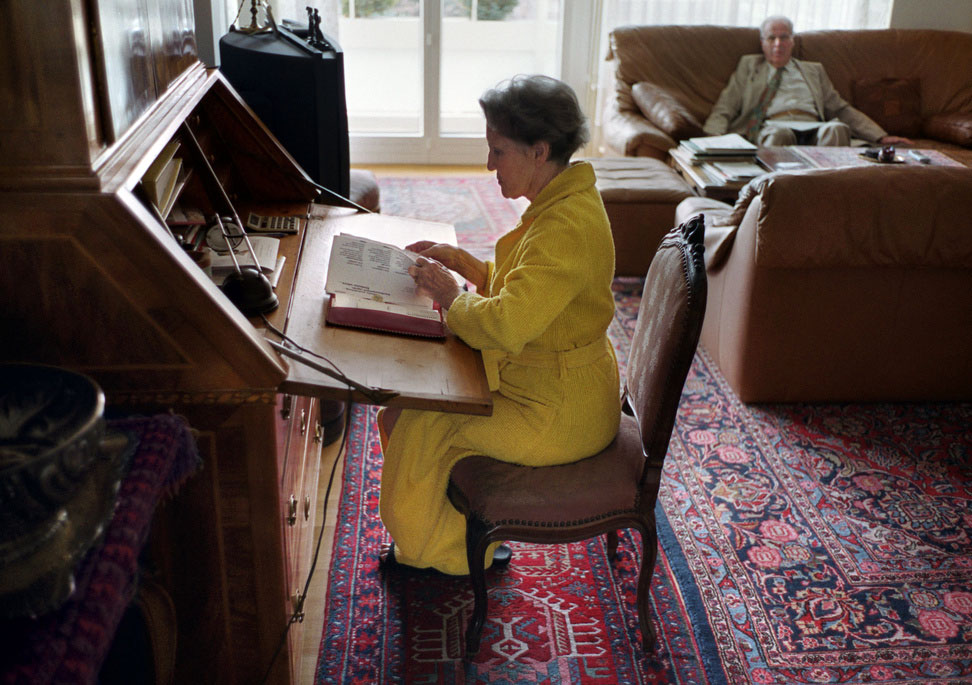Why do some people vote against their best interests?

Why would you vote against something from which you would benefit – or vote in favour of something that you would have to pay for but not benefit from?
An upcoming people’s initiative on raising pension payments by 10% has raised questions about the role of personal and national interests in direct democracy.
There have been several initiatives and referendums over the years in which the Swiss appear to vote against their own interests, rejecting for example a lower retirement age, an unconditional basic income and extra holiday. Incredulous foreign media reported on the holiday result as though turkeys had just voted for Christmas.

More
They rejected that? Notable vote failures over the years
The initiative on September 25 to raise pension payments looks like being another example of voters rejecting an idea that, at first glance, would appear to benefit them, according to the latest polls. If that does turn out to be the case, it will probably be because of older people, who tend to be more conservative than younger people, voting against change and a larger welfare system. More importantly, older people actually vote.
“We find that everywhere. If turnout is low, it’s very common that younger people have participated less than older people. This is usually related to the fact that they stand in a different point in their life cycle,” said Georg LutzExternal link, professor of political science at the University of Lausanne.
“Young people usually don’t have an income – maybe they’ve just moved out, they haven’t settled down, they haven’t bought a house, they don’t have children, things like that. This all explains why in general they are less stably integrated into society and as a consequence also don’t care so much about politics compared with other things in their life.”
This was clearly demonstrated in June’s vote on Brexit, when many young Brits, most of whom wanted to remain in the EUExternal link, shot themselves in the foot by not bothering to vote.
“What’s less clear is how conservative older people are,” Lutz told swissinfo.ch. “We know that young people might be slightly more liberal on some issues, but when we look at party choice, we see that as many young people vote for the [rightwing] Swiss People’s Party as older people. There’s no systematic difference. You really have to look at this case by case whether it affects people’s interest.”
Undecided pensioners
When it comes to raising pensions, there is a general left/right and young/old divide (the left and old are more likely to be in favour).
That said, views are far from unanimous within generations. swissinfo.ch contacted three organisations representing senior citizens and was told that the Swiss Association for Old People’s Issues was against the initiative, the Swiss Council for the Elderly was in favour and Pro Senectute was “not issuing a voting recommendation”.

More
Social security and Swiss pensions
“Money must first exist before it can be spent – the initiative says nothing about financing,” said Ueli Brügger, director of the Swiss Association for Old People’s Issues.
“Many people receive a pension who are not dependent on an increase of pension payments. The economy would then be burdened again with incidental wage costs. Changes in demographics mean the [pension] deficit will continue to increase and the hole in the [pension scheme] will get bigger and bigger as baby boomers retire.”
The Swiss Council for the Elderly, on the other hand, said in a statementExternal link that “lacking any real alternatives” a large majority of its delegates would vote in favour of “this very concrete initiative which should enable the country’s pensioners to have a worry-free retirement. The initiative aims to counteract the pension problem with a simple and rapidly implementable solution”.
Political convictions
For the initiative to fail, a sizeable chunk of older voters would have to vote against boosting their pension by 10%. In other words, when weighing up their political conviction and personal gain, the former would win.
“What explains way better whether somebody is in favour or against a certain proposal is not so much age but political orientation. Party line and general ideology explain voting behaviour way more than the question of whether someone is better or worse off,” Lutz said.
“You see that among older people – especially if you’re liberal and have a high income and when an extra 10% on your pension won’t make a huge difference. You also have young voters voting in favour of [increasing pensions payments].”
Not many though. While the leftwing Young Socialists and Young Greens are backing the initiative, all other youth chapters are against it.
Indeed, six youth chapters of parties on the political right have joined forces to protest against the initiative under the slogan “red card for pension swindle”, saying it is “unfair, doesn’t show solidarity [with young people] and isn’t sustainable”.
“The initiative is good for well-off pensioners but will lead to a debt mountain of billions of francs – with future generations left to pick up the tab,” the committee said in a statementExternal link.
But Tamara Funiciello, president of the Young Socialists, denied they were voting against their own interests.

More
Voters say no to longer holidays
“Certainly not! The initiative is the cheapest and safest of all pension plans. Nowhere else do low and middle incomes get as much paid out as a pension for the money they pay in. That goes for young and old,” she told swissinfo.ch.
Who will pay for it?
Foreign media often take a mildly mocking tone when reporting some Swiss votes: “Free money? No thanks, say Swiss voters” was a recent headlineExternal link in the Washington Post about the plan to introduce an unconditional basic income. To what extent are these superficially surprising results a consequence of Switzerland’s unique system of direct democracy?
“I’m not sure that this wouldn’t also be the case in other countries,” Lutz said. “I think two things are going on: first, people are not just thinking about themselves, they’re thinking about what’s in the country’s interests. For example, if a campaign manages to get the argument through successfully in a convincing way – ‘this proposal is damaging the economy’ – then a lot of people will vote no, independent of what their own view is,” he said.
“Another interesting phenomenon is that people are typically fiscally more conservative than politicians. Politicians try to campaign with promises which they then have to deliver and which are often quite costly. Voters tend to think ‘OK, maybe I’ll get something, but who will pay for it?’”
Lutz explained that people very often vote in favour of the interests of the economy and against redistribution, “because when you want to redistribute, someone has to pay for it”.

In compliance with the JTI standards
More: SWI swissinfo.ch certified by the Journalism Trust Initiative





You can find an overview of ongoing debates with our journalists here. Please join us!
If you want to start a conversation about a topic raised in this article or want to report factual errors, email us at english@swissinfo.ch.